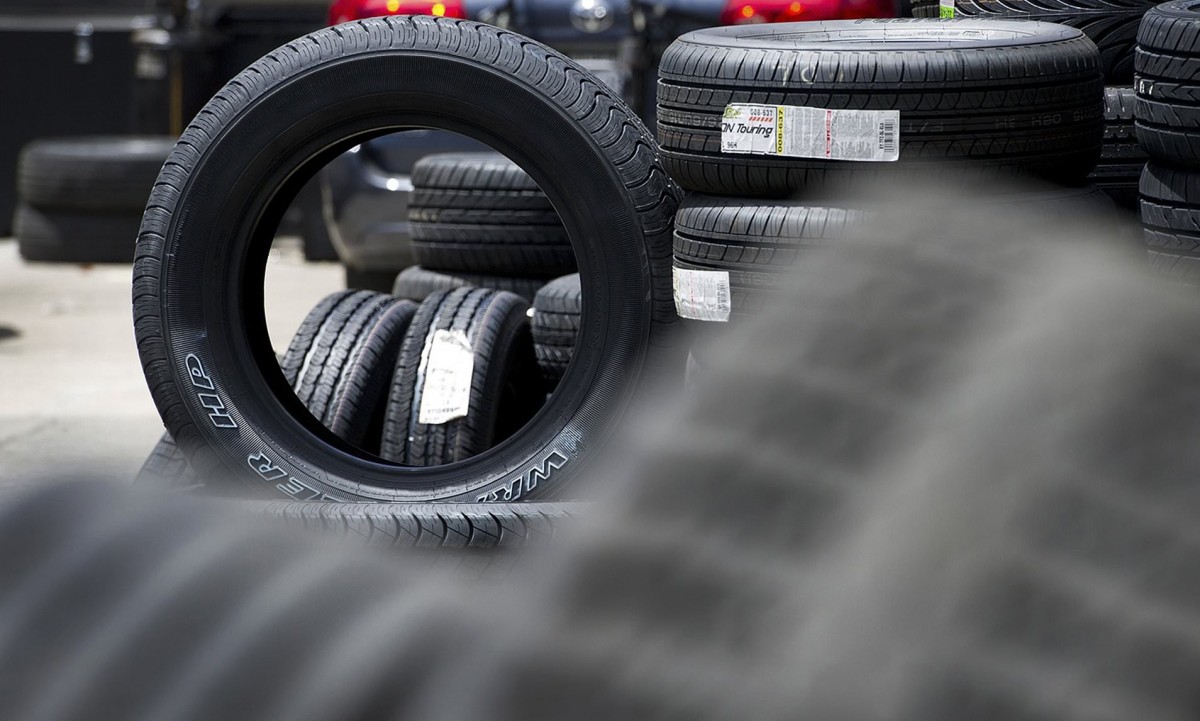The common vehicle tyre change season, which has not yet begun, has once again exposed old problems. Although end-of-life car "shoes" are environmentally hazardous waste and are commonly collected and handed over to handlers in Lithuania, thousands of discarded tyres are found in the forests again.
Specialists note that Lithuania has a user-friendly and simple system for handling end-of-life tyres by natural persons, and car service stations are also obliged to handle waste properly, but foresters' statistics show that a large part of them still go to more remote corners of nature.
Irresponsible behaviour or systemic problems?
The State Forest Enterprise announced in February that 700 tons of bulky waste and household rubbish were collected in 26 regional divisions last year, of which even 100 tons (about 3,000 cars) constituted end-of-life car tyres.
Paulius Repšys, the Commercial Director of Žalvaris, the largest hazardous and non-hazardous waste management facility in the country, says that this may be due to the fact that some drivers still lack information on how and where to get rid of end-of-life tyres. Alternatively, the forests that are becoming landfills again may be evidence of the systemic problems of some waste handlers and car service stations, which have been highlighted by the infamous fire in Alytus.
"We want to believe that the quantities of discarded tyres found in forests are not related to the unfulfilled obligations of the facilities accepting them for recovery to customers. However, the numbers are high, which raises reasonable doubts as to whether the quantities of tyres found by foresters can be only a consequence of the negative actions of the population," P. Repšys considers.
Obviously, we must be responsible for the environment in which we live, and throwing out tyres in the forests is in no way compatible with that, the specialist notes.
Two easy ways to get rid of old tyres free of charge
"Residents have at least a few ways to get rid of end-of-life or simply unnecessary tyres free of charge. The first is to leave the tyres where new ones are purchased: be it a specialist shop or a car service workshop. In both cases, purchasers can leave the same amount of tyres for the same type of vehicle as they are purchased," P. Repšys explains.
According to the specialist, the second way is the possibility to deliver old tyres to municipal bulky waste collection sites, which accept up to 4 or 5 end-of-life tyres from one resident per year free of charge – this number depends on the specific municipality.
Currently, there are almost a hundred such sites in Lithuania, and their contacts can be found in municipalities or on the website of the Environmental Protection Agency.
It is important to choose reliable sellers and car service stations
Legal entities must hand over waste tyres to the facility that handles them in accordance with the contract for recycling and recovery of such waste. The Commercial Director of Žalvaris points out that vehicle maintenance and repair companies are generally prohibited from returning old, end-of-life tyres to their users. By the way, these companies, like sellers, must ensure that end-of-life tyres are recovered or recycled.
"For the consumer, this is in fact the most convenient way. Each of us delivers the car to a car service station for regular technical inspection at least once a year, during which not only replaceable tyres, but also other waste generated during car repairs: oil, fuel, lubricants and air filters, shock absorbers, etc., may be left in the workshop," P. Repšys notes.
Therefore, according to the specialist, it is important to change tyres in reliable vehicle maintenance and repair companies or sales points: when purchasing a new car "shoe", leave the old one only to a tyre seller or car service station which acts responsibly – has entered into a contract with a waste handler to whom delivers automotive waste at least twice a year.
The specialist makes no secret of the fact that vehicle maintenance and repair companies have to pay a fee for the acceptance of waste tyres. As there are still car service stations operating in the shade, in such cases, the legal acceptance of end-of-life tyres is avoided and they remain unhandled and, in most cases, turn into unpleasant discoveries for foresters.
"A fee for the handling of waste tyres is already included in the price of the tyre, so it should be in the interest of every driver. Otherwise, he pays twice for environmental pollution – both by purchasing a tyre and by covering the costs of environmentalists for cleaning up contaminated areas," P. Repšys notes.
Damage to nature
According to P. Repšis, tyres that fall into nature only decompose in 120 years or more and all this time pose a danger to human health. In addition, they can cause fires and, when burned, release many harmful substances into the environment.
Recycled tyres are increasingly being used as an industrial raw material or as a new energy source, as well as when additionally saving production costs and forming the preconditions for a circular economy. In Lithuania, waste collectors recover tyres – shred and recycle them to create new products or export them to foreign facilities engaged in it, or safely incinerate them in specially adapted boilers for energy recovery.
What you need to know about tyre change in spring:
- The traffic rules stipulate that drivers may change tyres from winter to summer since April 1. It is forbidden to operate vehicles with studded tyres since April 10.
- Vehicles with studded tyres are considered to be malfunctioning from April 10 and police officers are entitled to revoke the roadworthiness for such vehicles.
- If the car is operated with unsuitable tyres, it is not covered by legal liability insurance.


